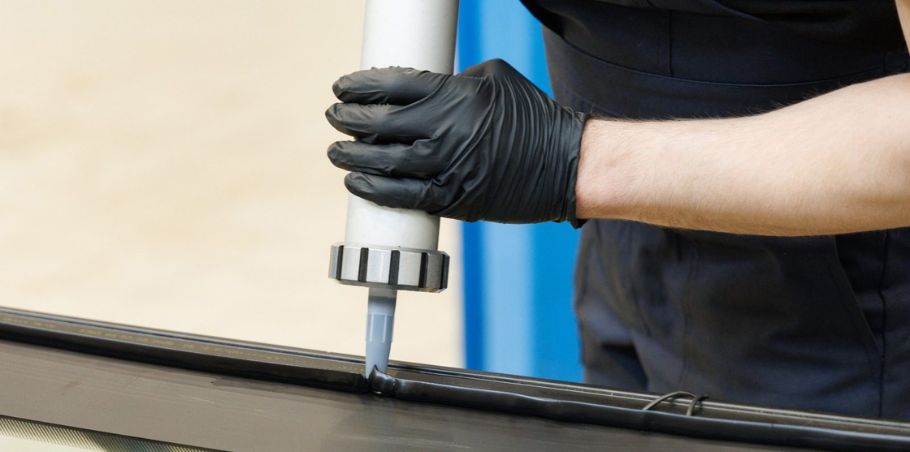The Complete Guide to Air Conditioning: Everything You Need to Know
Air conditioning has become a staple of modern life, especially in regions with sweltering summers or places where humidity is high. It goes beyond just cooling the air conditioning systems regulate humidity, improve air quality, and contribute to overall comfort in both homes and workplaces. But what exactly is air conditioning, and how does it impact our day-to-day lives?
What is Air Conditioning?
Air conditioning refers to the process of controlling the temperature, humidity, and air quality of an indoor environment. Whether it’s a cooling breeze in the summer or heating in the winter (as seen in HVAC systems), air conditioning is essential for maintaining comfort in a wide range of settings. From our homes to offices, air conditioning is critical in ensuring that living and working environments remain comfortable. It also has health benefits, such as reducing the risk of heatstroke and providing relief for people with respiratory conditions.
How Air Conditioning Evolved Over Time
Air conditioning, as we know it today, wasn’t always around. In fact, the concept dates back to ancient Egypt, where people used to cool their homes by hanging wet reeds in windows to cool incoming breezes. However, modern air conditioning technology began to take shape in the early 20th century. The invention of the first modern air conditioner is credited to Willis Carrier in 1902, who developed a system to control humidity for a printing plant. This innovation set the stage for air conditioning as we know it, evolving over decades with key milestones such as the introduction of residential air conditioners in the 1950s.
How Air Conditioning Works
At the heart of any air conditioning system is the refrigeration cycle. This involves a chemical refrigerant that absorbs and releases heat to cool down your space. The refrigerant moves between the indoor and outdoor units of an air conditioning system, cooling the air inside your home while releasing the heat outside. Air conditioning systems typically consist of several components, including the compressor, condenser coil, evaporator coil, and an expansion valve. Each of these parts plays a crucial role in transferring heat and keeping your space cool.
Types of Air Conditioning Systems
Air conditioning systems come in various types, each designed for specific spaces and cooling requirements. Choosing the right system for your home or workplace depends on factors like the size of the area, budget, energy efficiency needs, and personal preferences. Let’s explore the most common types of air conditioning systems available today.
Central Air Conditioning
Central air conditioning systems are the most common in larger homes and buildings. They use ductwork to distribute cool air throughout the entire space, offering a consistent temperature in every room.
Window Air Conditioners
Window air conditioners are affordable, easy to install, and perfect for smaller spaces like apartments. These units fit in a window and are ideal for cooling one room at a time.
Portable Air Conditioners
If you need cooling flexibility, portable air conditioners are a great choice. They can be moved from room to room, making them ideal for renters or those who want temporary cooling solutions.
Split Air Conditioning Systems
Split systems consist of an indoor and outdoor unit, with the indoor unit mounted on a wall and the outdoor unit outside the building. These systems are energy-efficient and popular in homes without ductwork.
Benefits of Air Conditioning
At its core, air conditioning is all about comfort. Whether you’re relaxing at home, working in an office, or traveling in a vehicle, air conditioning can create an environment where you feel more at ease and productive. Air conditioning systems also improve air quality by filtering out dust, allergens, and pollutants. This is particularly important for people who suffer from allergies or asthma. Excessive heat can lead to heat exhaustion or heatstroke, but with air conditioning, you can maintain a safe indoor temperature, helping to prevent these health risks.
Air Conditioning for Different Spaces
For homes, air conditioning systems ensure that living spaces remain comfortable, especially during extreme weather. Homeowners can choose from various types based on their specific needs, like central systems or split units. Larger spaces, such as offices and factories, often rely on robust air conditioning systems to maintain comfortable working environments. These systems may include centralized HVAC systems that regulate both temperature and humidity. Whether you’re in a car, bus, or airplane, vehicle air conditioning systems play an important role in keeping passengers cool and comfortable during their journeys.
How to Make Your Air Conditioner More Efficient
Energy efficiency is an essential consideration for anyone with an air conditioner. Regular maintenance, using a programmable thermostat, and ensuring proper insulation are all effective ways to reduce energy consumption. The Seasonal Energy Efficiency Ratio (SEER) rating is a measure of an air conditioner’s efficiency. The higher the SEER rating, the more efficient the unit, leading to lower electricity bills. Smart thermostats allow you to control your air conditioner from anywhere using a smartphone. They also learn your habits, optimizing your cooling schedules to save energy and costs.
Common Air Conditioning Problems and Solutions
One of the most common issues is when an air conditioner isn’t cooling properly. This could be due to dirty filters, refrigerant leaks, or a malfunctioning compressor. If you notice water pooling around your air conditioner, it may be a sign of a blocked drain pipe or a refrigerant issue that needs attention. Unusual noises, like banging or hissing, can indicate problems with the motor, compressor, or other internal components. A bad odor coming from your air conditioner could mean mold or mildew is growing inside, or there may be a clogged drain line.
How Often Should You Service Your AC?
It’s generally recommended to have your air conditioner serviced once a year, preferably before the summer season begins. Regular maintenance ensures that your system runs efficiently and lasts longer. While changing air filters and cleaning vents can be done on your own, it’s best to call a professional for more complex tasks like checking refrigerant levels or cleaning the coils. Clogged air filters can cause your air conditioner to work harder than necessary, leading to higher energy bills and a less efficient system. Be sure to change them every 1-3 months, depending on usage.
Costs of Installing and Running Air Conditioning
The cost of installing an air conditioning system depends on various factors, including the size of the unit, the complexity of installation, and whether ductwork needs to be installed or modified. Running costs are influenced by how often you use your system, your unit’s energy efficiency, and the cost of electricity in your area. Energy-efficient units may cost more upfront but save money over time. Air conditioning is responsible for a significant portion of global energy use, especially in countries with hot climates. This has raised concerns about its environmental impact, particularly in terms of carbon emissions. Newer technologies, like solar-powered air conditioning and energy-efficient units, are helping to reduce the environmental impact of cooling systems.
Innovations in Air Conditioning Technology
Solar-powered air conditioners harness energy from the sun, reducing reliance on electricity and offering a sustainable cooling solution. Smart systems not only allow for remote control but also integrate with home automation systems to optimize energy use based on occupancy and weather conditions.
Choosing the Right Air Conditioner for Your Home
Before purchasing an air conditioner, consider the size of the area you need to cool, your budget, and any specific needs, such as energy efficiency or smart features. Popular air conditioning brands like Daikin, LG, and Carrier offer a wide range of models, each with its own set of features and price points. Research and compare these options to find the best fit for your home.
The Future of Air Conditioning
The future of air conditioning will likely see a continued focus on energy efficiency, with units that use less power while delivering optimal cooling. As concerns about climate change grow, the air conditioning industry is also exploring more environmentally friendly options, such as refrigerants with lower global warming potential and systems that consume less energy.
Conclusion
Air conditioning has become an indispensable part of our lives, providing comfort, improving health, and increasing productivity in both residential and commercial settings. As technology advances, air conditioning systems are becoming more energy-efficient and environmentally friendly, helping us cool our spaces more sustainably.
If you gained new insights from this article, explore our blog, Gimkit, for more enlightening content.
Share this content:














Post Comment